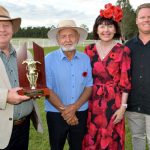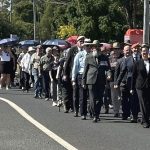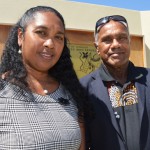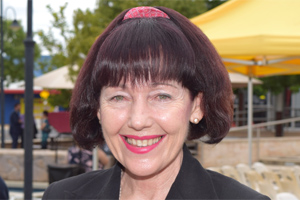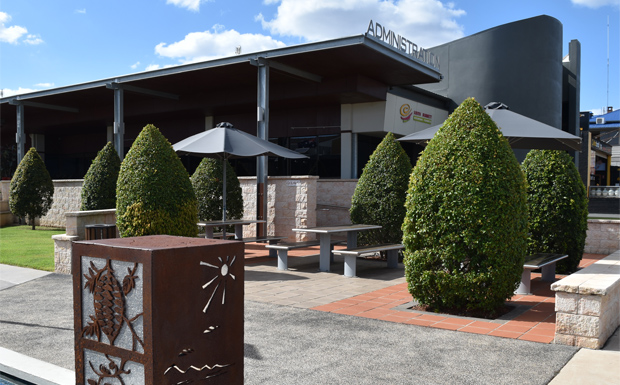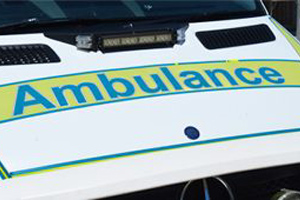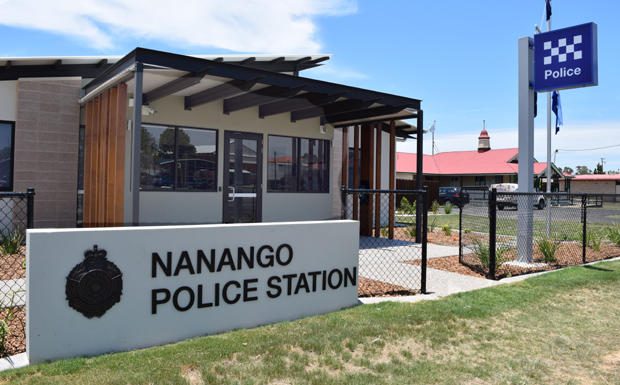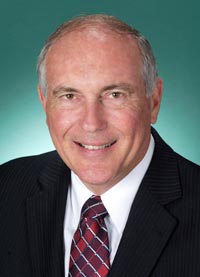
September 6, 2012
Earlier this year Member for Wide Bay Warren Truss invited voters in his electorate of Wide Bay to have their say in his 2012 Community Survey.
His office has now collated the answers from the more than 4100 responses to the 100 questions.
Answers came from residents of the Murgon, Gympie, Maryborough and Noosa areas.
Health, the state of the roads, foreign ownership of land and border protection appear to be hot-button issues.
And there’s little chance that local residents will be supporting a republic, daylight saving or a change to the flag anytime soon.
Here is an abridged version of the responses:
- 88 per cent of respondents said they were concerned about the condition of State and local roads. The biggest concerns were on the Fraser Coast (93 per cent) and the South Burnett (91 per cent)
- 83 per cent said they were concerned about their safety when travelling on the Bruce Highway
- 87 per cent of people said more freight should be sent by rail instead of road
Most people felt safe and secure in their local area, but they were worried about crime.
- 68 per cent of Murgon residents felt safe while 64 per cent of respondents from the Fraser Coast area felt secure.
- 88 per cent across Wide Bay wanted more police on the beat, 81 per cent wanted higher penalties and tougher sentencing, 80 per cent favoured licence plate recognition technology to identify hooning vehicles and 81 per cent wanted more closed circuit television cameras in known problem areas.
Improving hospitals and health care was identified as the most important issue in the electorate.
Out of 18 policy areas, 63 per cent rated hospital and health care among their top four most important concerns.
Other concerns finishing in the top four included reducing the cost of living (39 per cent); improving roads (25 per cent); and tougher sentences for law breakers (21 per cent).
- 37 per cent are satisfied with the range of services available from their local hospital
- 82 per cent said they were readily able to access a general practitioner
- In Murgon, only 33 per cent said they could readily access medical specialists and only 59 per cent could access dentists, physiotherapists, chiropractors etc.
The survey also gauged people’s support for a National Disability Insurance Scheme with 49 per cent in favour.
There was strong support for Medicare being extended to cover dental care: 85 per cent said yes; and 48 per cent of respondents were willing to pay a higher Medicare levy for it.
- 81 per cent support the creation of local hospital boards
- 79 per cent said Federal Government funding for health care should be paid direct to local hospitals
Wide Bay residents are not convinced that Australia is doing all it should to deliver a better education system.
- 93 per cent said greater emphasis should be placed in the school curriculum on basic skills, such as reading, writing and arithmetic
- 79 per cent supported greater emphasis on the teaching of Australian history at school and 62 per cent thought school students should complete compulsory community service as a part of their education
- 76 per cent were concerned about bullying
- 53 per cent said the details of the performance of schools should be made public
- 50 per cent supported free university education
- Only 5 per cent believe the Federal Government has delivered its education revolution promise
- 50 per cent said they were satisfied with the internet speeds available in their home; 65 per cent said they were not prepared to pay anything extra to get high speed broadband
Residents were undecided about whether the Australian Constitution should be amended to include a Bill of Rights. 31 per cent supported the proposal, 33 per cent were against, but 36 per cent said they were unsure.
However there was overwhelming support for greater protection for property rights with 84 per cent of respondents saying property rights should be enhanced.
However, Wide Bay republicans are a minority: 58 per cent were against Australia becoming a republic; 82 per cent said the Australian flag should not be changed and 83 per cent said it should be illegal to desecrate the Australian flag.
The survey revealed strong support for higher age pensions and more benefits for self-funded retirees.
- 41 per cent said the welfare system in Australia had the balance “about right”, compared with 39 per cent who thought it was too generous, and 20 per cent who said it was not generous enough,
- 41 per cent thought the conditions placed on receiving Centrelink benefits were about right, but 49 per cent said they were not tough enough, and 10 per cent felt they were too harsh.
- 30 per cent said they knew of someone cheating the welfare system
- Only 27 per cent expected to be able to fund their own retirement
- 74 per cent said the age pension should be increased but only 35 per cent would support higher taxes to fund higher pension payments
Foreign ownership concerned Wide Bay residents: 90 per cent were concerned about the level of foreign ownership of land and 89 per cent were concerned about the level of foreign ownership of companies.
- Opposition to foreign ownership was highest in the Murgon area where 95 per cent of respondents were opposed
- 85 per cent of respondents said the government should intervene to prevent foreign takeovers
- 58 per cent said there should be no increase in the number of skilled migrants to Australia
- 74 per cent were opposed to an increase to the number of humanitarian and refugee migrants to Australia
- 66 per cent said there should be no increase in the number of family sponsored migrants to Australia
There was little support for the Federal Government’s Malaysia solution for asylum seekers:
- 10 per cent in favour and 81 per cent opposed; 64 per cent were in favour of the offshore processing of asylum seekers.
- 82 per cent said Australia should not spend more on foreign aid
There is also widespread unease about the adequacy of Australia’s quarantine and border protection measures: 58 per cent concerned and 25 per cent not concerned
People were also concerned about population growth, with 54 per cent saying there should be a cap placed on Australia’s population (32 per cent against).
- 32 per cent would like to see a freeze on their local area’s population (54 per cent against), but in Noosa 44 per cent want a local population freeze (44 per cent against).
As previously reported, more than four years after the forced amalgamation of local Councils, only 9 per cent of respondents say that the amalgamation of their Council has been successful.
A strong majority of the respondents to the survey want a referendum on whether their Council should be de-amalgamated.
- While 10 per cent said the amalgamation of their Council has been a success, an overwhelming 78 per cent said it had not and 12 per cent were unsure.
- Satisfaction with the success of amalgamated Councils was low across the electorate, with the Gympie Regional Council getting the best result: 15 per cent. In the South Burnett Regional Council area, just 9 per cent of respondents thought the amalgamation had been successful, compared with 76 per cent who thought the amalgamation was unsuccessful.
- Those in favour of a referendum on de-amalgamation were highest in the former Noosa Shire (80 per cent) and Fraser Coast (68 per cent). In Gympie it was 51 per cent and the South Burnett 53 per cent.
Wide Bay residents are worried about the economic climate:
- 80 per cent of respondents are concerned about the current economic climate and the impact it will have on their quality of their life.
- Only 6 per cent felt they were better off now than at this time last year, with 57 per cent saying they were worse off.
- 33 per cent of respondents were concerned about their job security with 57 per cent confident their jobs were safe.
- 87 per cent of respondents felt there should be more local Work for the Dole programs
- Only 11 per cent of respondents thought the Federal Government was heading in the right direction compared with 74 per cent who said it was not.
- 54 per cent of people who responded to the survey thought that unions have too much power
- 70 per cent thought that the private sector has the greatest role in providing sustainable and secure jobs
- Only 20 per cent of people are satisfied with Australia’s Fair Work laws
- 54 per cent supported the increase in compulsory superannuation contributions from 9 per cent to 12 per cent but also thought that employees should fund the increase themselves
- 67 per cent of people are concerned about red tape and the number of government forms they are required to complete
- 78 per cent of people thought the government should provide assistance to business and industry to support local jobs
- 38 per cent thought that Australia should continue to subsidise the manufacture of cars, but 74 per cent thought that the government should subsidise food production. The strongest support for food production subsidies came from the South Burnett (81 per cent) and Gympie (77 per cent).
- 82 per cent were concerned about the level of Federal Government debt; 71 per cent were concerned about State Government debt; and 45 per cent about Local Government debt.
- Concerns about Local Government debt were highest in the in the South Burnett (49 per cent) and lowest in the Sunshine Coast Council (43 per cent).
- 74 per cent were opposed to the Federal Government continuing to borrow money to fund its spending.
- 61 per cent thought the level of taxation in Australia was about right
- 53 per cent felt the government should give priority to infrastructure expenditure; 21 per cent would prefer tax cuts
- 77 per cent said they always tried to buy Australian food and groceries but 51 per cent said increased grocery prices had made them now more likely to buy cheaper imported produce.
The majority of residents do not understand how the carbon tax will work and they have deep concerns about its potential impact on Australian industry.
- 79 per cent said they believed the carbon tax would lead to Australian industries relocating to countries that do not have an emissions tax
- 49 per cent said they do not understand how the carbon tax works
- 20 per cent believed the carbon tax would lead to a reduction in their electricity use
- 77 per cent said they were not willing to pay anything extra to use renewable energy in their homes
- 37 per cent said the carbon tax was too high
- 43 per cent said the carbon tax should be delayed until other countries have similar schemes
- 59 per cent said the carbon tax should be abolished entirely.
The survey also revealed that only 9 per cent of respondents believe climate change is caused by humans
- 49 per cent felt that climate change is a part of a natural environmental cycle made worse by humans
- 42 per cent said climate change is just part of a natural environmental cycle
- 41 per cent had installed solar panels and/or a solar hot water system
- 36 per cent supported nuclear energy as a means to reduce carbon emissions
- 35 per cent supported uranium mining. Support for nuclear power was much stronger on the Sunshine Coast than in other parts of the electorate with 51 per cent saying yes
- 65 per cent supported the opening up of new coal mining areas in Queensland
- 27 per cent supported the extraction of coal seam gas in Queensland.
In relation to the management of the Queensland’s water resources, only 18 per cent of respondents supported a water grid to supply water from the Wide Bay region to Brisbane; 25 per cent supported aquifer storage and recovery, while 38 per cent supported more dams.
The use of recycled treated sewerage for industrial purposes was supported by 66 per cent, but only 14 per cent favoured the use of recycled sewerage for human consumption.
- 52 per cent supported water savings schemes
- 34 per cent supported piping water from the tropics
- 18 per cent supported desalination
- 13 per cent supported pumping water from Fraser Island
- 41 per cent supported fluoridation of the water
Support for daylight saving remains very low in Wide Bay, with just 33 per cent wanting daylight saving introduced to Queensland (62 per cent against).
In Noosa, there was 49 per cent support but only 16 per cent want it in Murgon, 22 per cent in Gympie and 29 per cent in the Maryborough area.
The full results of the survey are available on www.warrentruss.com
Related articles:







